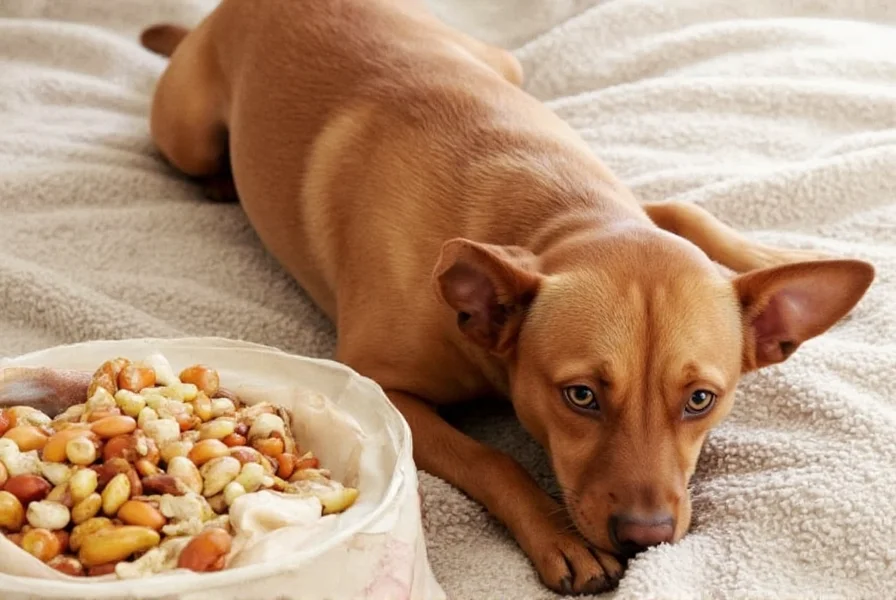As a pet owner, you might wonder about sharing human foods or natural remedies with your dog. When it comes to cloves—a common spice in many kitchens—the answer is clear and critical for your pet's safety. Understanding why cloves are dangerous for dogs helps prevent accidental poisoning and ensures you make informed decisions about what your canine companion consumes.
Why Cloves Are Toxic to Dogs
Cloves contain a potent compound called eugenol, which gives them their distinctive aroma and flavor. While humans can safely metabolize small amounts, dogs lack the necessary enzymes to process eugenol effectively. This biological difference makes cloves significantly more dangerous for canines than for humans.
When dogs ingest cloves, the eugenol can cause:
- Irritation of the gastrointestinal tract
- Damage to liver cells
- Central nervous system depression
- Respiratory distress in severe cases
Essential oils derived from cloves are particularly hazardous, as they contain concentrated levels of eugenol. Even diffusing clove oil in your home can potentially affect sensitive dogs through inhalation.
Symptoms of Clove Toxicity in Dogs
If your dog has consumed cloves, watch for these symptoms which may appear within hours:
| Symptom Category | Specific Symptoms | Timeframe After Ingestion |
|---|---|---|
| Digestive | Vomiting, diarrhea, excessive drooling, loss of appetite | 1-6 hours |
| Neurological | Lethargy, weakness, tremors, difficulty walking | 2-12 hours |
| Severe Toxicity | Difficulty breathing, seizures, collapse | 6-24 hours |
The severity of symptoms depends on the amount consumed, your dog's size, and individual sensitivity. Small dogs face greater risk from smaller quantities than larger breeds.
How Much Clove Is Dangerous for Dogs
There's no safe amount of cloves for dogs, but toxicity increases with quantity:
- Small amounts (1-2 whole cloves or a pinch of ground cloves): May cause mild digestive upset
- Moderate amounts (3-5 cloves or 1/4 teaspoon ground cloves): Likely to cause significant gastrointestinal distress
- Large amounts (more than 5 cloves or 1/2 teaspoon ground cloves): Risk of severe toxicity requiring immediate veterinary attention
- Clove oil (even 1-2 drops): Potentially dangerous due to high concentration
Remember that products containing cloves—such as potpourri, dental products, or certain natural remedies—also pose risks. Always check ingredient labels on any products used around your dog.
What to Do If Your Dog Eats Cloves
If you suspect your dog has consumed cloves, take these steps immediately:
- Remain calm but act quickly—panicking won't help your pet
- Identify what and how much your dog consumed (save packaging if available)
- Contact your veterinarian or pet poison control immediately—do not wait for symptoms to appear
- Follow professional guidance—your vet may recommend inducing vomiting or other treatments
- Monitor your dog closely for any developing symptoms
Never attempt home remedies without veterinary guidance, as some common suggestions can worsen the situation. Time is critical with potential toxin exposure, so seek professional help immediately.
Safe Alternatives to Cloves for Dogs
If you were considering cloves for a specific purpose—such as freshening breath or addressing digestive issues—safer alternatives exist:
- For fresh breath: Veterinary-approved dental chews or dog-safe toothpaste
- For digestive support: Plain canned pumpkin (not pie filling) or probiotic supplements formulated for dogs
- Natural pain relief: Consult your vet about appropriate canine-safe options rather than using human remedies
Always consult your veterinarian before introducing any new substance to your dog's diet or care routine. What seems harmless to humans can be dangerous for dogs due to their different metabolism.
Preventing Clove Exposure in Your Home
Protect your dog by taking these preventive measures:
- Store spices securely in cabinets dogs cannot access
- Be cautious during holiday cooking when cloves are commonly used
- Avoid using clove-containing essential oils in diffusers around dogs
- Check ingredients in homemade dog treat recipes
- Supervise your dog around potpourri or scented candles
- Educate family members about toxic foods and spices for dogs
Remember that many common kitchen spices pose risks to dogs. While some like turmeric have potential benefits in controlled doses, others like cloves, nutmeg, and cinnamon can be harmful.

When to Consult Your Veterinarian
Seek immediate veterinary care if your dog has consumed cloves and shows any symptoms, or if the amount consumed exceeds what would be considered a small exposure. Early intervention significantly improves outcomes in cases of potential toxicity.
Your veterinarian may perform blood tests to check liver function and provide supportive care such as intravenous fluids, activated charcoal to absorb toxins, or medications to manage symptoms. Never delay seeking professional help when dealing with potential toxin exposure.










 浙公网安备
33010002000092号
浙公网安备
33010002000092号 浙B2-20120091-4
浙B2-20120091-4